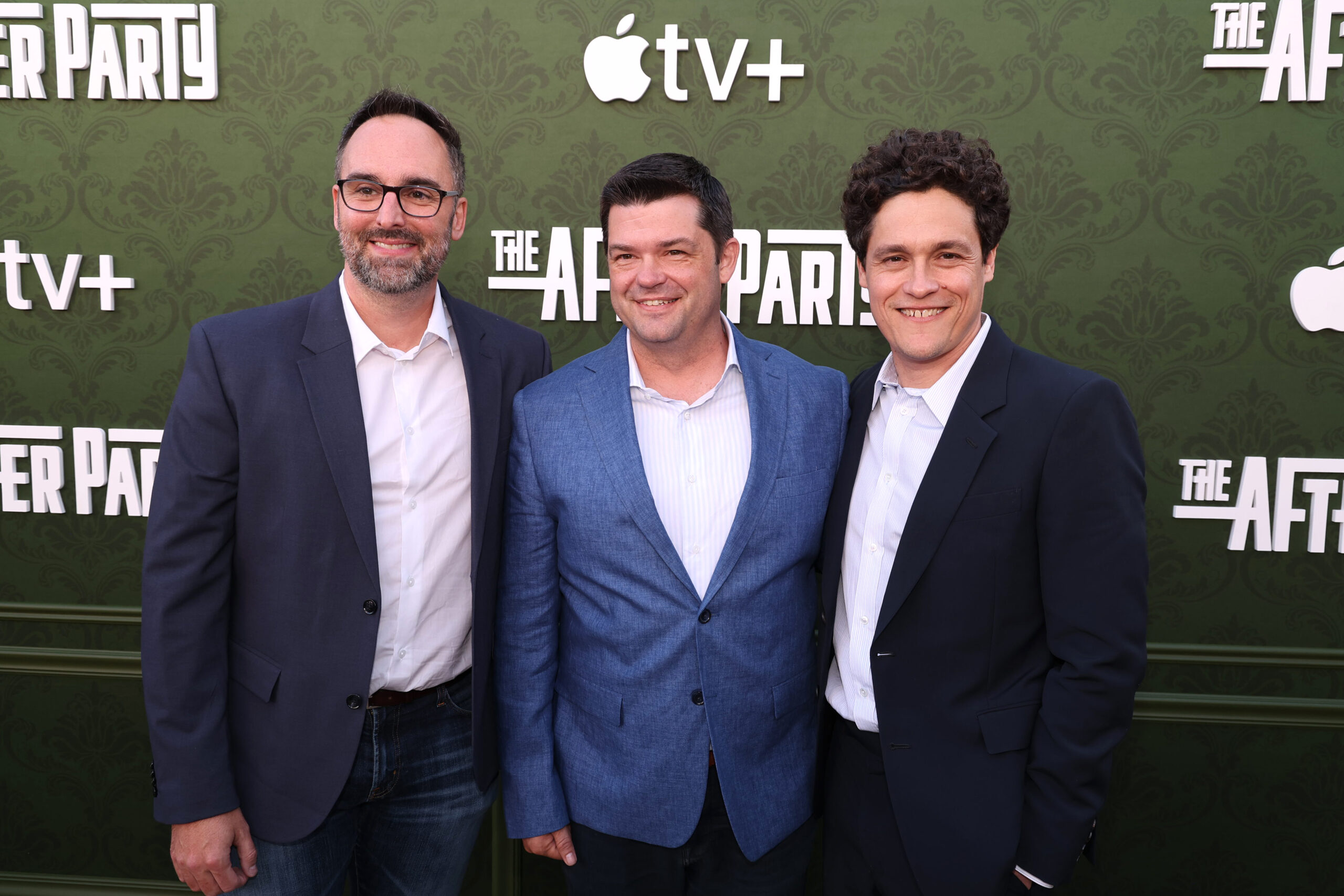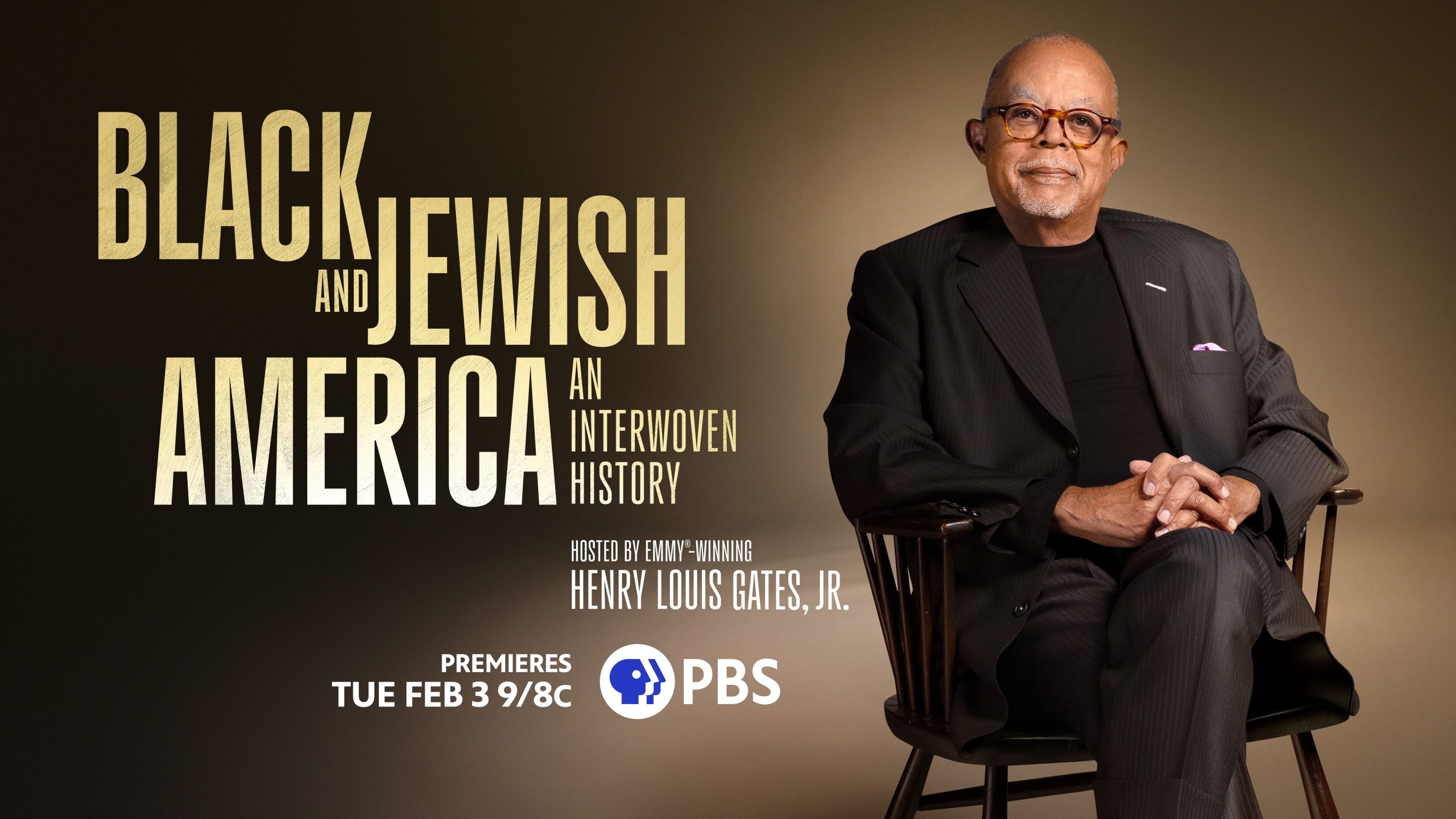
The following interview with The Afterparty executive producers Phil Lord, Chris Miller, and Anthony King was originally published at Above the Line. In light of the site being taken offline this weekend, I am republishing my interview with the executive producers on Solzy at the Movies. None of the text has been changed except for restoring the original ending.
Apple’s murder mystery series The Afterparty recently debuted its second season, and executive producers Phil Lord, Chris Miller, and Anthony King were on hand to discuss the hilarious whodunit, which takes place at a wedding this time instead of a high school reunion.
Tiffany Haddish, Sam Richardson, and Zoë Chao return for Season 2, but the rest of the cast is all new, including Poppy Liu, Zach Woods, Elizabeth Perkins, Jack Whitehall, Ken Jeong, Paul Walter Hauser, Anna Konkle, John Cho, and Vivian Wu.
Once again, each episode is told via an entirely different genre, with the new season tackling everything from the suspense thrillers of Alfred Hitchcock to the period romances of Jane Austen, not to mention film noir and the erotic thriller — each genre carefully chosen to best serve the story and illuminate the character at the center of the episode.
It’s a formula that worked well in Season 1, after which King was promoted to co-showrunner for Season 2, where his contributions were more crucial than ever due to the fact that Lord and Miller had to balance their Afterparty responsibilities with their work as producers on Spider-Man: Across the Spider-Verse, which hit theaters last month.
Above the Line recently spoke to Lord, Miller, and King, who stressed the importance of having writers on the set of The Afterparty, the ability to improvise, and how the writing does not stop at the end of prep. Miller, who created the series, also discussed his experience directing an episode in the style of a Hitchcockian thriller.
The first two episodes of Season 2 are now streaming on Apple TV+, where you can see the talented ensemble of The Afterparty do great work thanks to smart writing — just keep in mind while watching that it’s the CEOs who are making a killing off the hard work of WGA and SAG-AFTRA members, which is why those guilds are currently in the midst of a righteous strike. Their strength and solidarity in the face of challenging times are to be admired…

Above the Line: Season 2 of The Afterparty pulls no punches. What were the biggest challenges in breaking the story and keeping track of who’s where and when?
Chris Miller: [laughs] That was the actual hardest part of this thing. It’s such a complicated, interwoven story where every episode, if you change one thing in one episode, it has a ripple effect on all the episodes. The writers room had all these charts and graphs of who was where, when. When we wanted to tell a story that had to have someone somewhere else, we were like, “Oh, no, we have to start over on this other thing.” It made everybody pull [their] hair out and it was madness, but we had a really great group of really smart people. The cast ended up adding a lot of stuff — obviously not in the intertwining of the murder mystery and who’s where, but just [in] bringing a lot of specialness and individuality to their characters and stuff.
ATL: The show does a beautiful job at keeping the audience guessing because I still don’t have it figured out after watching nine episodes!
Miller: Excellent.
Anthony King: Yeah.
Miller: That’s right.
Phil Lord: As intended.
Miller: But hopefully, when you see the final one, you’ll be like, “Oh, that’s right. Of course!” That’s the feeling we want you to have — [the] satisfaction of, “it was right there if I paid attention to the clues.”
ATL: The genre choices were fantastic this season. Did any just miss the cut?
King: I don’t think any of them were considered for Season 1, right? I think all the genres really come out of the characters, so once we knew the characters for this season, we started thinking about how they would tell their story. That’s where we started building out all the genres. Grace is getting married and she has so much whimsy — she’s full of this joy — and [she] loves the idea of love, so it kind of felt like a Jane Austen story. We kind of tried that process with all of the characters.
Miller: Yes. It makes it feel artificial or gimmicky if you’re like, “I want to do a Western. I’m gonna cram it onto the story somehow.” It really has to organically come out of who the characters are for [it] to feel really satisfying.

ATL: Chris, what was it like to direct an episode in the style of Alfred Hitchcock?
Miller: Oh, man, that was very hard, and also, a lot of pressure because [he’s] only one of the greatest directors of all time. I sort of went back to school and rewatched about five or six Hitchcock movies. You notice some of the really clever things that he did with a camera to draw your attention to certain places and how he played with suspense and all that type of stuff. Really, one of the most challenging parts about it was imitating the three-strip Technicolor look of it, which, from a technical standpoint, you wouldn’t think would be as hard as it actually was to pull off with modern equipment.

ATL: The episode centered on Tiffany Haddish’s Danner had me cracking up hysterically. Can you talk about that one?
King: That’s where I had to go to school and watch a lot of ’90s erotic thrillers. [laughs]
Lord: How much food do they use? Not enough, is what I think the conclusion [was].
Miller: That was very fun because we had counters full of various foods and Anthony would be like, ‘Give ’em the uncooked macaroni.’
King: That day on set, Chris and I were just grabbing food and going like, ‘Pour this on yourself!’ That was a very fun day.
ATL: There are so many talented improvisers in the cast. I was talking to Ike Barinholtz about the ability to improvise on set and how, during the WGA strike, that’s not allowed right now. How important is it to have the ability to improvise on set and help strengthen an already solid script in a way that AI cannot do?
Miller: That’s for sure.
Lord: I just think [it’s important to] allow the actors to follow their instincts, and that goes for all of us behind the camera, too. If Chris or Anthony have an idea that comes to them in the moment, the ability to get that onto the camera as fast as possible keeps the thing alive, right? And if not, you’re not using all of your available tools to make the best show.
Miller: There’s a reason why we cast people who are excellent improvisers — because we want that extra energy, extra ideas, and the thoughtfulness because these things are huge collaborations with teammates. Everybody is adding creatively. The prop people are adding creatively. The costume people are adding creatively. Finding people… a lot of these people are also writers themselves or created their own shows or [they’ve] written movies, so they’re thinking about these things as writers as well. They’d come in and pitch lines for themselves, but they’d also pitch lines for their scene mates and be like, “Oh, it’d be funnier if you said this.”
Lord: It’s an example of how writing doesn’t just happen before prep and then stop.
Miller: Right.
King: Right. Everything on a set is… the lighting is changing because of this. The way an actor said that line affects the way the [other] actor responds, and everything’s so alive if it’s going well. The idea that you would say, “But the script is not alive, that is locked. That’s [set in] stone…” It feels like you’re putting handcuffs on it.
Lord: Or [saying] you don’t need writers on this set to help keep the show good.
King: And to respond to what’s happening right in that moment.
Lord: Yeah, it’s ridiculous.
Miller: Yeah. We were lucky enough — and not all shows are lucky enough — to be able to have some writers on set besides ourselves while we were doing it. That’s one of the things that the writers are fighting for right now in the strike — having the ability to have writers be on set while we’re shooting the thing because we need all the help we can get and all the ideas we can get to make it be the best thing it can be.

ATL: Season 2 premiered a month and a half after Spider-Man: Across the Spider-Verse opened in theaters. How were you able to find the time to balance your responsibilities on the show with your duties on the film?
Miller: It was very hard. I will say, thankfully, Anthony was there on set every day while we were shooting. I was running back and forth. I would sometimes start the day on set and then run back to Sony, which, thankfully, was right near my house. It was on the way home, to be able to check-in, or then I would get home and then someone would have sent me a scene to go over. I would sort of alternate days. I would say it was not the easiest time.
Lord: No. We also wrote the script during Season 1.
Miller: Yeah, we wrote the script for Across the Spider-Verse sometimes on set. That’s right. The multitasking aspect of it was…
Lord: We could do without [it].
Miller: Yeah, it would be much easier to do one thing at a time, but we’re fools.
ATL: Well, I loved the new season.
Miller: Oh, I’m glad to hear that. Thanks.
King: Thank you.
Lord: You’re a tough critic, so we will take that compliment to the confidence bank.
ATL: Have you started breaking story on Season 3 or is that being put off until after the strike?
Miller: Well, we are on, as you said, a strike right now, so anything that we’ve been thinking about and working on beforehand is on ice. Hopefully, we’ll get a fair deal for the writers because there’s a lot more than we can do with this show and there are other ways to die and be killed.
Lord: There are other people to remember the ideas that we had before the strike. It’s a shame we didn’t write any of that down.
Miller: Ah, man.
King: I thought it was written down.
ATL: Thank you so much. It was so nice chatting with you this afternoon.
Miller: Right. It’s great talking to you.
Lord: Always, Danielle. Be well.
Season 2 of The Afterparty is currently streaming on Apple TV+.
Please subscribe to Solzy at the Movies on Buttondown.





